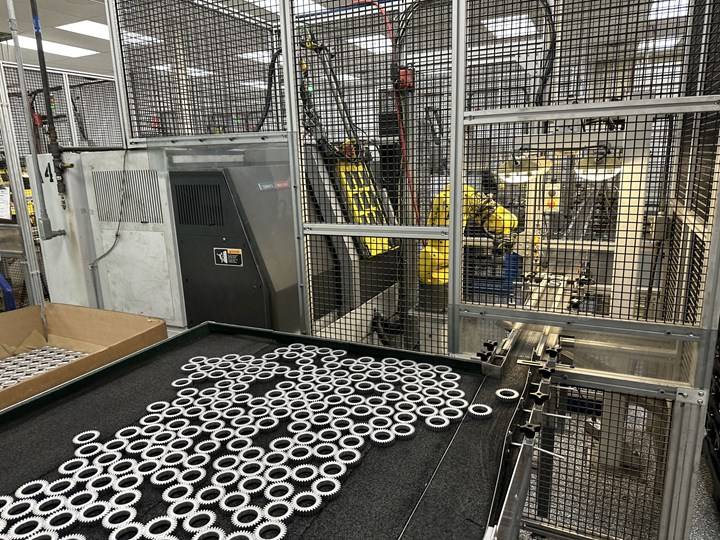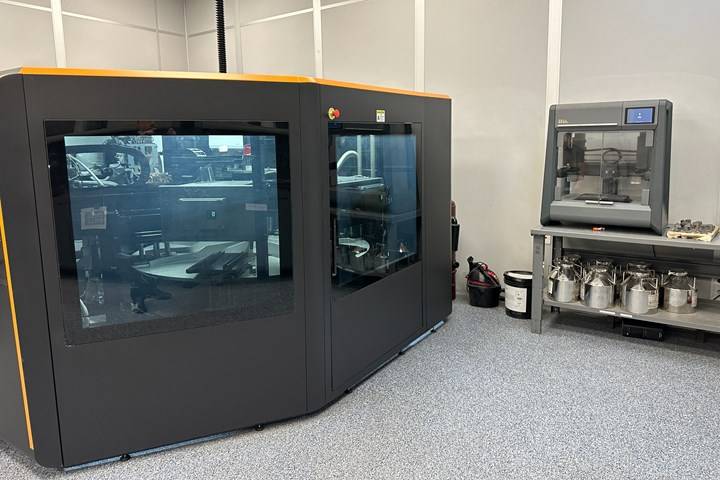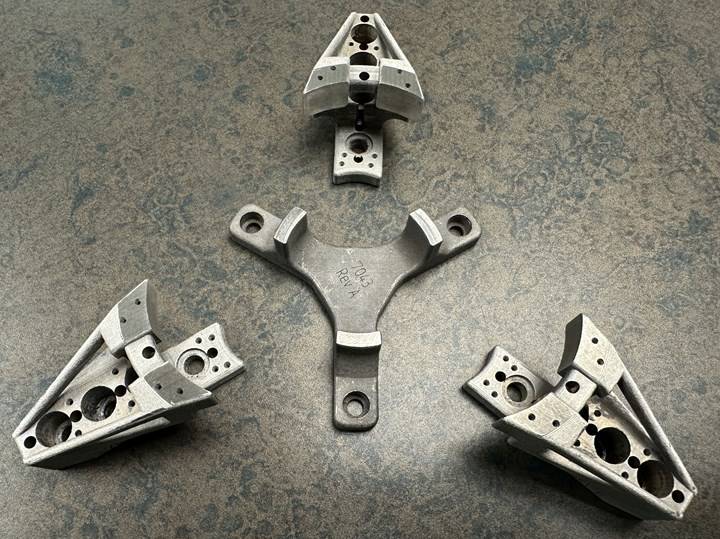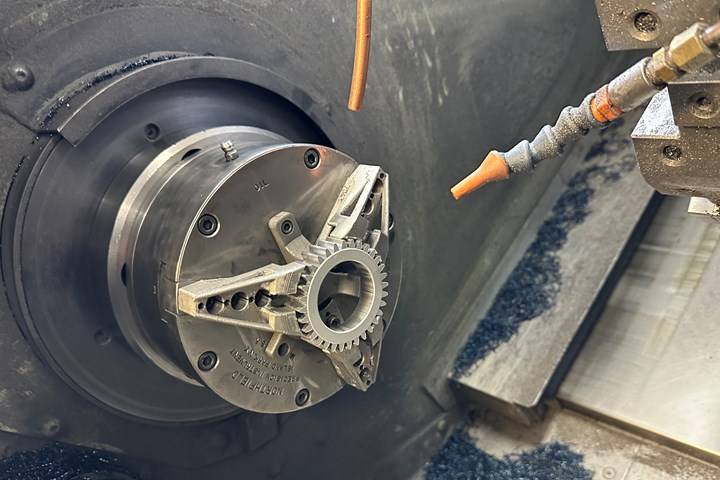Alpha Precision Group (APG) of Ridgway, Pennsylvania, ventured into metal 3D printing in 2018 with the aim of refining parts intended for metal injection molding (MIM) and fabricating durable fixtures for CNC machining. One of their earliest breakthroughs came with the development of chuck jaws for turning cam gears, which they now offer to both internal and external customers.
Originally, the chuck jaws were conventional, machined from mild steel, but they proved heavier than necessary at 2,100 grams, requiring excessive clamping pressure and risking deformation of the gear during turning. Leveraging their first metal 3D printer, the Studio system by Desktop Metal, APG embarked on a redesign focused on lightweighting the chuck jaws.

Lightweighting with Bound Metal Deposition for Chuck Jaws
Utilizing bound metal deposition (BMD), a process akin to traditional fused filament fabrication (FFF) but with metal powder-infused polymer filament, APG incorporated lattice structures and bridging to reduce material usage. This redesign significantly lightened the chuck jaws, enabling a reduction in clamping pressure from 30 to 15 psi, thus mitigating deformation issues.
Subsequently, with the acquisition of the Dominant 3D printer from Tritone Technologies, employing Moldjet technology, APG further optimized the chuck jaws. Moldjet prints wax molds filled with metal paste, allowing for highly intricate geometries. The resulting chuck jaws, weighing only 492 grams, marked a remarkable 77% weight reduction from the original design.

Enhanced Optimization
This innovative approach not only conserves material but also enhances productivity by facilitating faster spindle speeds during the turning process. While cycle time impact remains modest for APG’s cam turning application, the potential for customers lies in achieving higher sustained spindle speeds without compromising clamping force.


